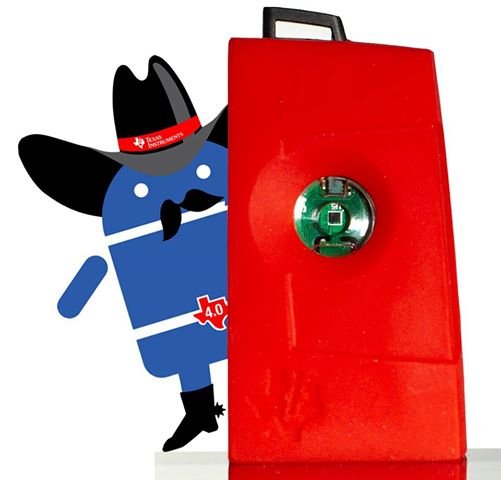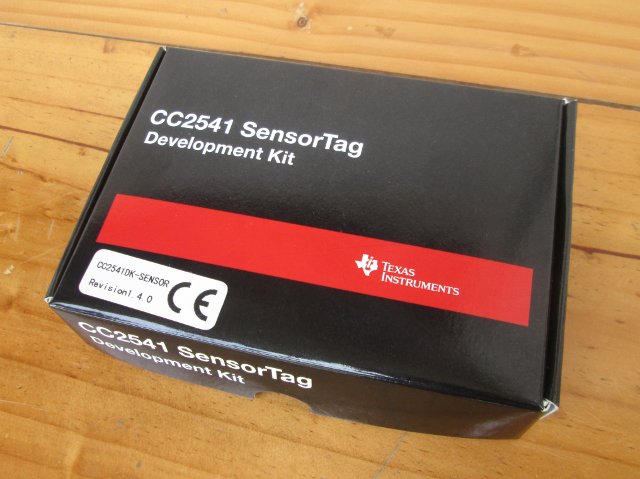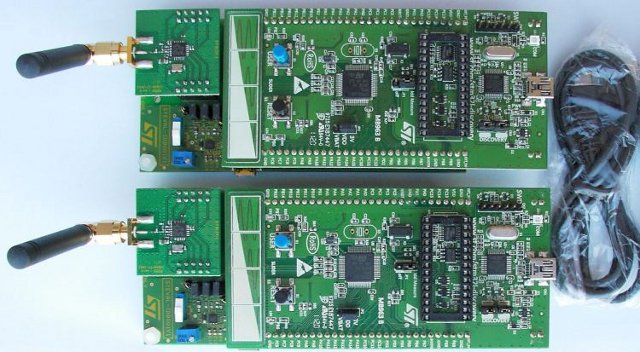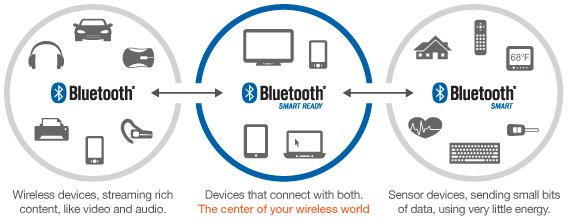Texas Instruments Sensortag is a Bluetooth Low Energy (BLE) development kit with 6 sensors (IR temperature, humidity, pressure, accelerometer, gyroscope, magnetometer) mainly destined at mobile application, which I recently tried in Linux. Until now, only it was only officially supported in iOS and Windows, but a few days after the release of Android 4.3 which adds Bluetooth Low Energy support, Texas Instruments quickly worked to release an Android App for their BLE devkit. The annoying part is that the Android app is only available as a Windows executable (SensorTagAndroidApp-0_9_0-windows-installer_2.exe), so you’ll have not choice but to use Windows to uncompress the files. Yet the installation goes as follows: Copy the SensorTag.apk file (SensorTag_0_9_0.apk) to your Android 4.3 device Enable installation of apps from unknown sources (Settings -> Security -> Device Administration -> Unknown Sources) Open file manager and launch, locate the .apk file and install the app by clicking the […]
Texas Instruments SensorTag Unboxing, Getting Started with Bluetooth Low Energy in Linux (with a Raspberry Pi)
Texas Instruments CC2541 SensorTag is a Bluetooth Low Energy (BLE) development kit with 6 sensors (IR temperature, humidity, pressure, accelerometer, gyroscope, magnetometer) mainly destined at mobile application developers for iOS, and soon, Android 4.3. I’m interested in BLE, as I expect most new phones with come with BT 4.0 BLE (aka Bluetooth SMART), and this technology may help bring the Internet of things to life, allowing us to interact with sensors, smart appliance (e.g. light switch)… Since it just costs $25 (including international shipping), I decided to buy it, and give it a try. Today, I’ll show some unboxing pictures, and how to communicate with the kit using the Linux command line. TI SensorTag Unboxing I ordered it at the end of May, and receive it by Fedex on the 18th of July, about 7 weeks later, in the package below. Inside we’ve got a Quick Start Guide for iOS […]
Enter Wearable Tech Innovation World Cup 2013 for Cash Prizes and Free Development Kits
The Wearable Technologies Innovation World Cup is a yearly competition open worldwide, with prizes worth a total of $200,000, “designed to inspire and stimulate excellent next generation solutions with the potential to become real marketable products for Wearable Technologies on the subjects Sports & Fitness, Healthcare & Wellness, Security & Prevention, Gaming & Lifestyle”. This year, the contest is open between June 1, 2013 and November 30, 2013, and the good news is that even if you don’t win a cash prize, you can still purchase relevant devkit at a discount, or even get them for free. There are 3 companies involved who participate in the program from which you can get development kits: ST Microelectronics: STEVAL-IDB001V1(100% discount for the first 100 registrants) – STEVAL-IDB001V1 is a demonstration board based on STBLC01 low power Bluetooth low energy (BLE) controller and powered by STM32L MCU. Regular price: $159. STEVAL-MKI119V1 (No discount) – […]
Bluetooth Versions Walkthrough, and Bluetooth 4.0 Low Energy Development Resources
I’ve seen more and more Bluetooth 4.0 LE devices in the last few months including RFDuino, Wimoto Motes, TI SensorTag, and Scadanu Scout, so I thought it would be good to write a bit about Bluetooth. First, I’ll write about the different version of Bluetooth, since I was still confused with the practical implications between the versions, and then I’ll show some development kits and software resources to play around and/or develop Bluetooth 4.0 LE applications both on devices and hosts. Bluetooth Versions Bluetooth v1.0 and v1.0B The Bluetooth 1.0 Specification was released in 1999, and according to an entry in Wikipedia, 1.0 and 1.0B devices had many issues, mainly interoperability issues. You won’t find any Bluetooth 1.0 device today. Bluetooth v1.1 Bluetooth v1.1 was ratified as IEEE Standard 802.15.1-2002 in 2002. It fixed many issues found in the previous specifications, added the option to use non-encrypted channels, as well […]






